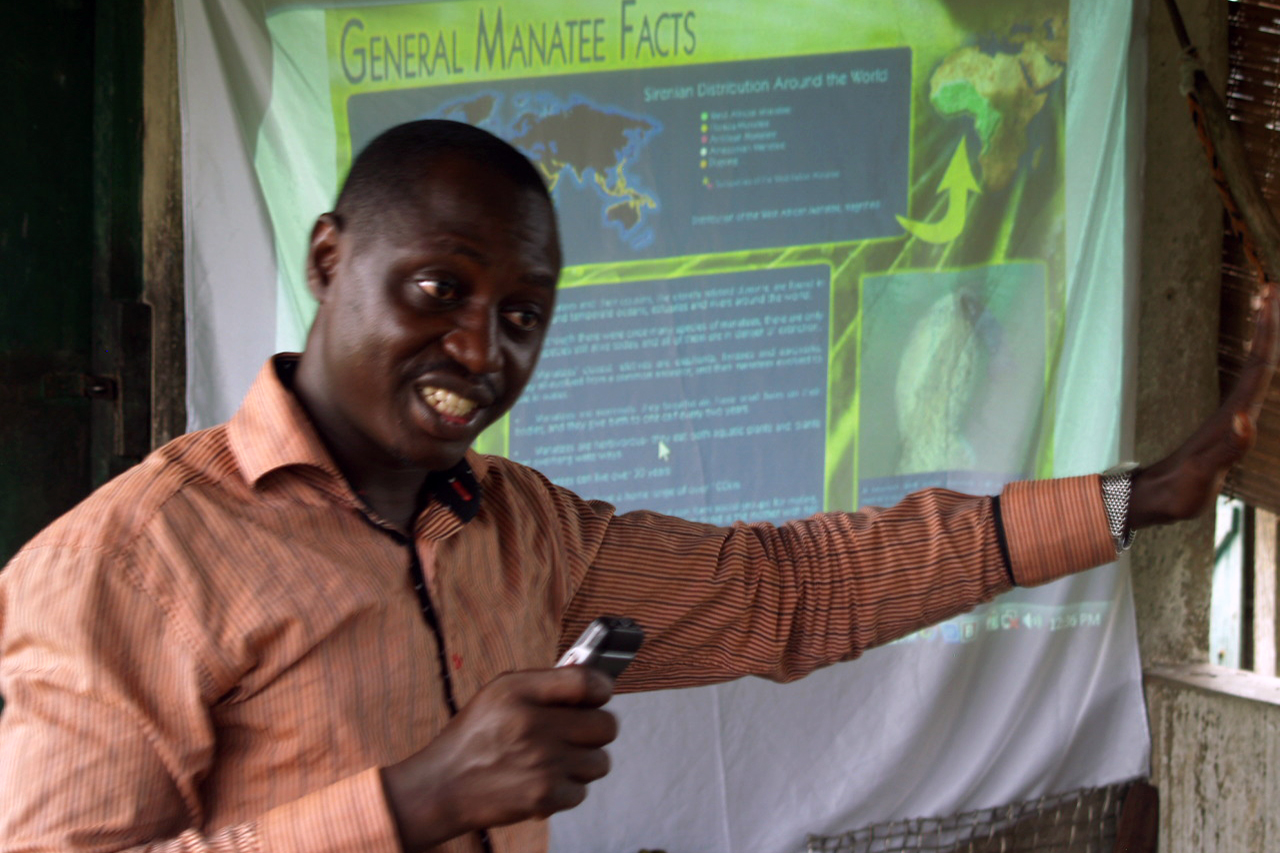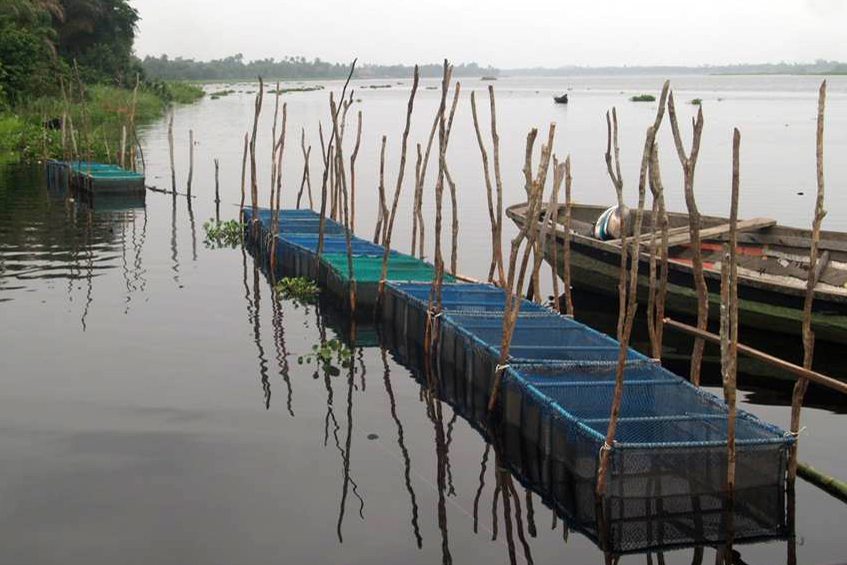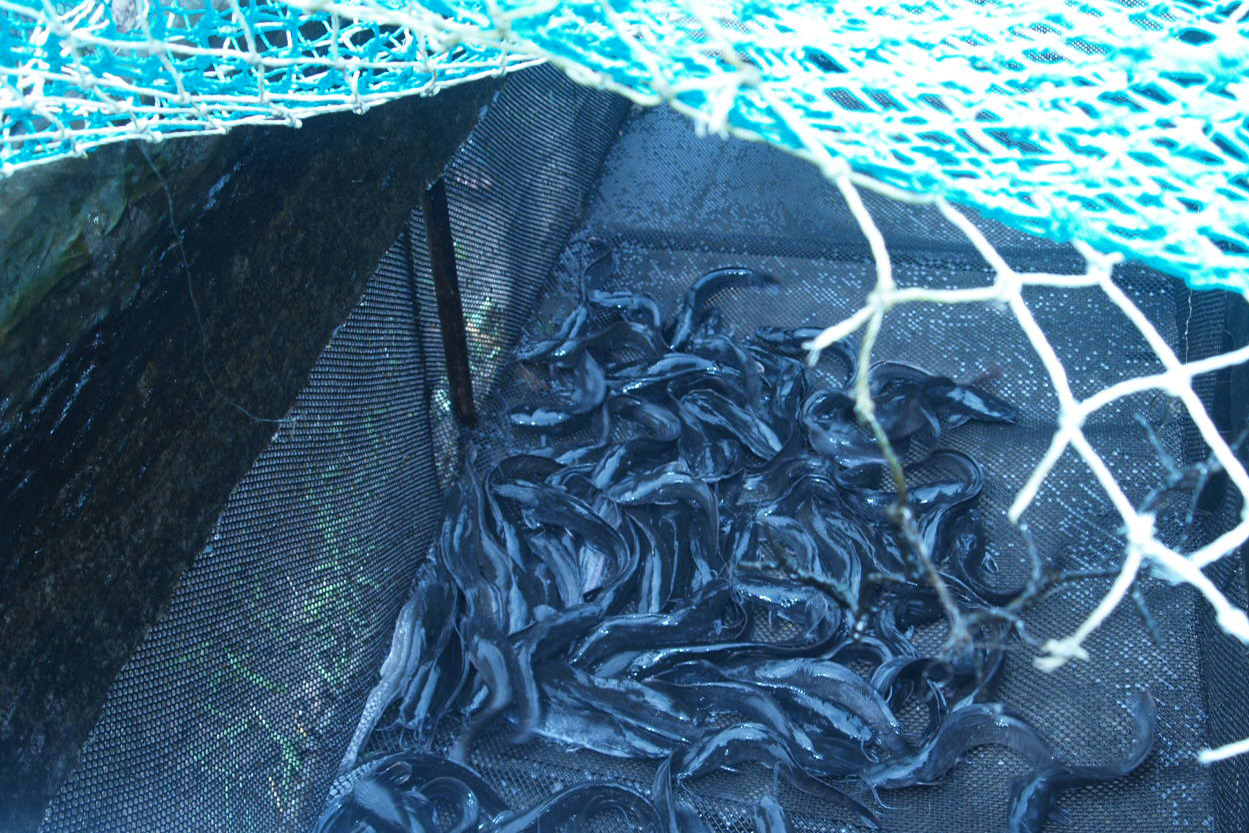How the humble catfish is saving manatees
Manatee hunters are giving up their traps for a more sustainable alternative.
Dunsin Bolaji, a Nigerian scientist, is saving African manatees in his country. He works with fishermen at Lekki Lagoon, south-east of Lagos, and has empowered them to farm catfish in return for giving up their manatee traps. Since the aquaculture project was established in 2013, all manatee hunting has stopped within the community and not one of the mysterious sirenians has been killed.
Bolaji, a principal research officer for the Nigerian Institute for Oceanography and Marine Research, decided to get involved in manatee conservation after attending a training workshop in Ghana in 2008 with manatee experts Lucy Keith Diagne and Patrick Kwabena Ofori-Danson. ‘They helped me to see that this gentle and harmless species is in great danger in Africa because of hunting, and I wanted to help,’ he said. In the year before he established the project, 133 manatees were killed at Lekki Lagoon. Although local people are primarily fishermen, manatee meat is more valuable than fish. Nevertheless, Bolaji convinced them that catfish aquaculture will provide them with a more reliable and sustainable income in the long term.
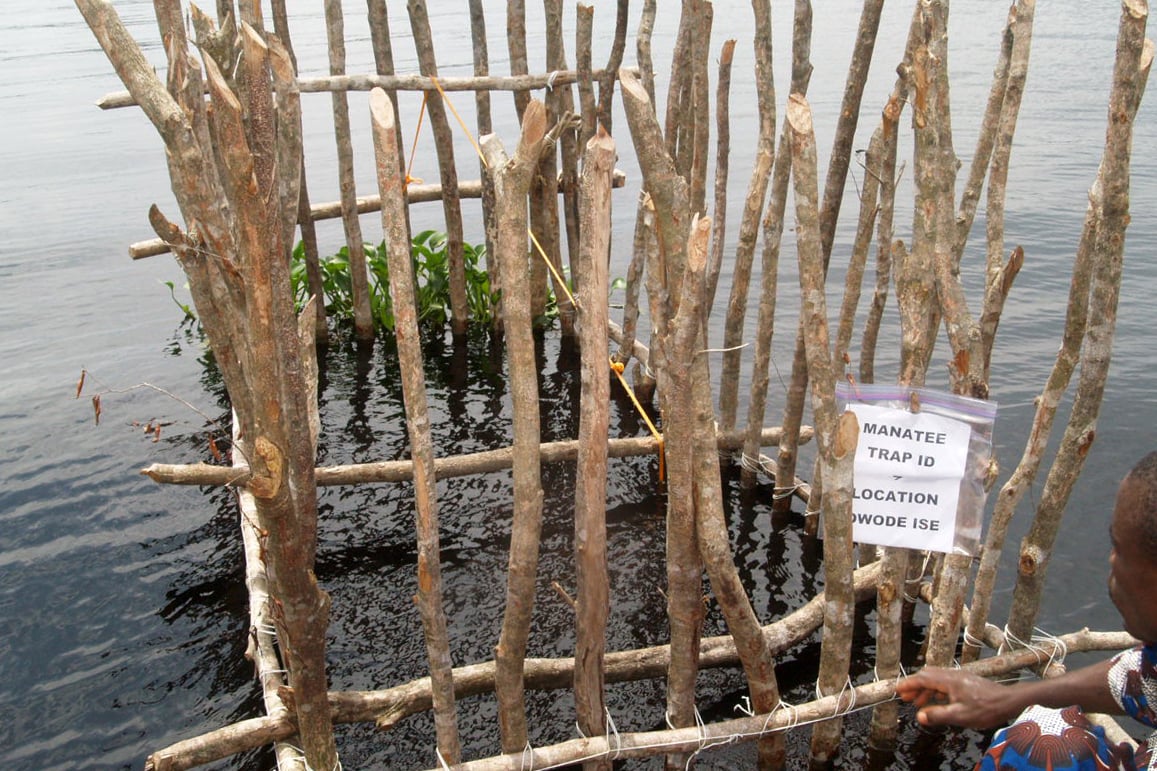
Manatee trap marked for removal at Lekki Lagoon, Nigeria as part of a program to teach catfish aquaculture to former manatee hunters in exchange for them giving up hunting. © Photo by Dunsin Bolaji
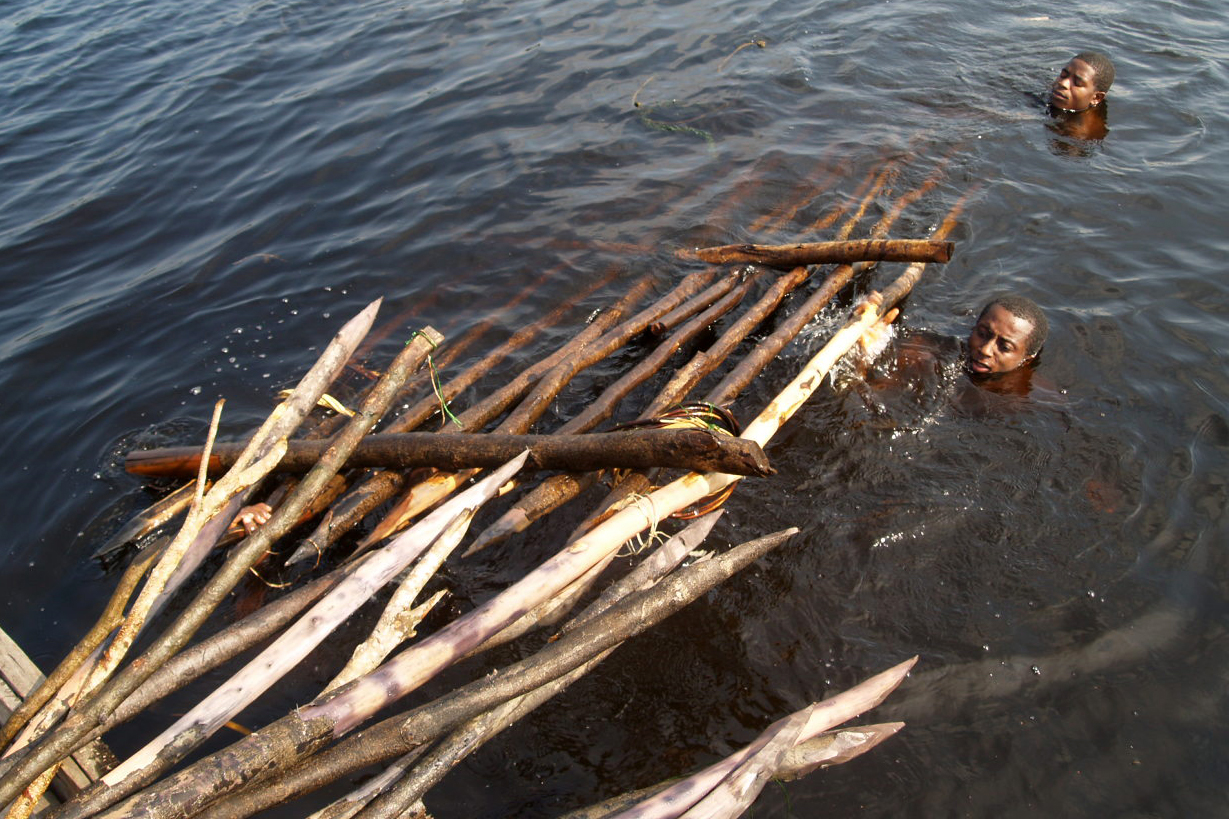
Manatee trap removal at Lekki Lagoon, Nigeria as part of a program to teach catfish aquaculture to former manatee hunters in exchange for them giving up hunting. © Photo by Dunsin Bolaji
In order to join the aquaculture project, manatee hunters had to agree to give up all hunting and remove their traps. Bolaji then accompanied them to their trap locations, recorded the sites using GPS, and made sure the trap was removed and not replaced later. In exchange, the hunters were provided with the materials and training that they need to farm catfish, including floating fish cages, fingerling catfish and food for the first year. To date the fishermen have sold more than one ton of catfish – and so impressed their neighbours that three nearby communities have asked for the training. It costs approximately US$20,000 to convert a community in Nigeria from hunting to aquaculture. Bolaji hopes to raise funds to expand the project into other Lekki Lagoon communities.
Dr Lucy Keith Diagne has been working on manatee conservation in Africa for almost 10 years and is impressed by Bolaji’s project. ‘This is the first time aquaculture has been used successfully as an alternative livelihood for African manatee hunters. We hope this project can be an example for other communities in Africa to show that alternative livelihoods to manatee hunting are achievable, and can provide a better income for local people,’ she said.
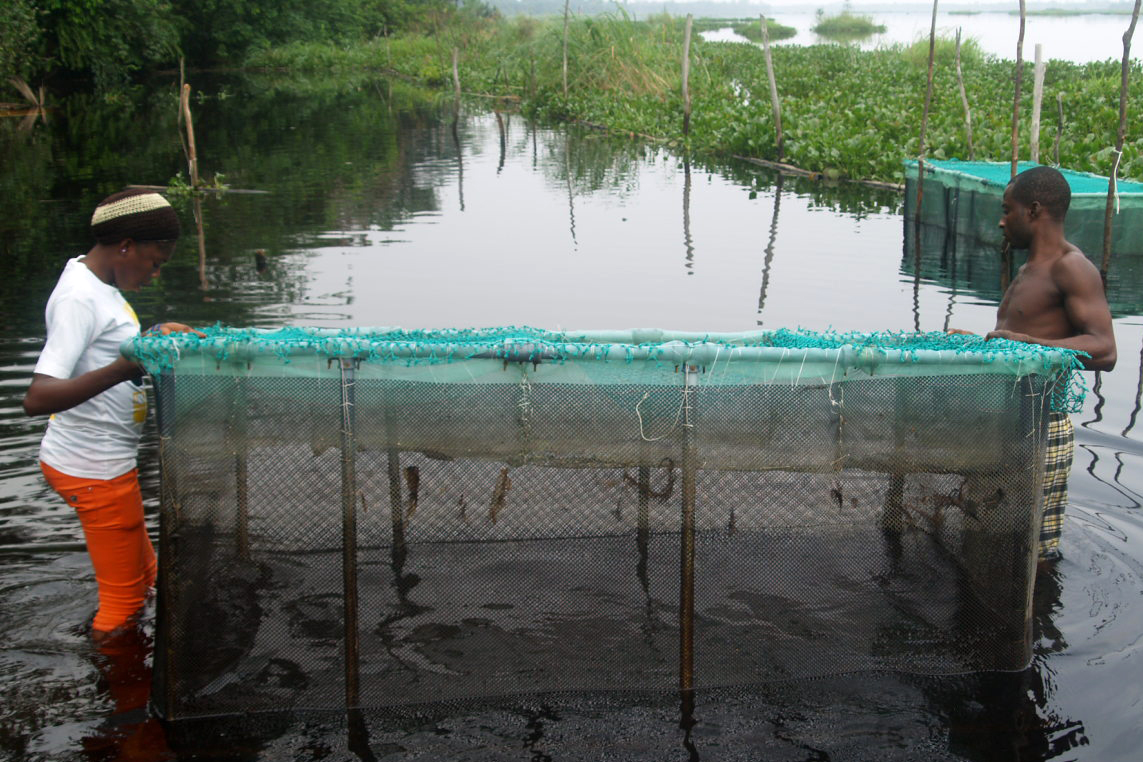
A completed fish cage in installed at Lekki Lagoon, Nigeria as part of a program to teach catfish aquaculture to former manatee hunters in exchange for them giving up hunting. © Photo by Dunsin Bolaji

